Related Research Articles

Franklin Joseph Lymon was an American rock and roll/rhythm and blues singer and songwriter, best known as the boy soprano lead singer of the New York City-based early rock and roll doo-wop group The Teenagers. The group was composed of five boys, all in their early to mid-teens. The original lineup of The Teenagers, an integrated group, included three African-American members, Lymon, Jimmy Merchant, and Sherman Garnes; and two Puerto Rican members, Joe Negroni and Herman Santiago. The Teenagers' first single, 1956's "Why Do Fools Fall in Love", was also their biggest hit. After Lymon went solo in mid-1957, both his career and that of The Teenagers fell into decline. In 1968, Lymon was found dead at the age of 25 on the floor of his grandmother's bathroom from a heroin overdose. Lymon was posthumously inducted into the Rock and Roll Hall of Fame in 1993 as a member of the Teenagers. His life was dramatized in the 1998 film Why Do Fools Fall in Love.

Sarah Lois Vaughan was an American jazz singer and pianist. Nicknamed "Sassy" and "The Divine One", she won two Grammy Awards, including the Lifetime Achievement Award, and was nominated for a total of nine Grammy Awards. She was given an NEA Jazz Masters Award in 1989. Critic Scott Yanow wrote that she had "one of the most wondrous voices of the 20th century".
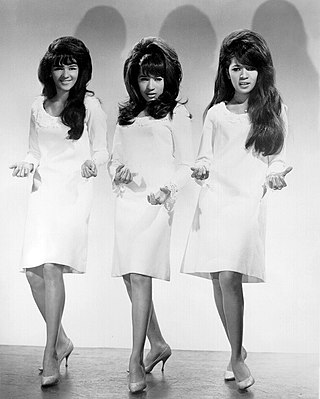
The Ronettes were an American girl group from Washington Heights, Manhattan, New York City. The group consisted of lead singer Veronica Bennett, her older sister Estelle Bennett, and their cousin Nedra Talley. They had sung together since they were teenagers, then known as "The Darling Sisters". Signed first by Colpix Records in 1961, they moved to Phil Spector's Philles Records in March 1963 and changed their name to "The Ronettes".

Ronald "Ronnie" Kray and Reginald "Reggie" Kray were English organised crime figures, and identical twin brothers from Haggerston, who were prominent from the late 1950s until their arrest in 1968. Their gang, known as the Firm, was based in Bethnal Green, where the Kray twins lived. They were involved in murder, armed robbery, arson, protection rackets, gambling and assaults. At their peak in the 1960s, they gained a certain measure of celebrity status by mixing with prominent members of London society, being photographed by David Bailey and interviewed on television.

Diahann Carroll was an American actress, singer, model, and activist. Carroll was the recipient of numerous stage and screen nominations and awards, including her Tony Award in 1962, Golden Globe Award in 1968, and five Emmy Award nominations.

William Clarence Eckstine was an American jazz and pop singer and a bandleader during the swing and bebop eras. He was noted for his rich, almost operatic bass-baritone voice. In 2019, Eckstine was posthumously awarded the Grammy Lifetime Achievement Award "for performers who, during their lifetimes, have made creative contributions of outstanding artistic significance to the field of recording". His recording of "I Apologize" was given the Grammy Hall of Fame Award in 1999. The New York Times described him as an "influential band leader" whose "suave bass-baritone" and "full-throated, sugary approach to popular songs inspired singers like Earl Coleman, Johnny Hartman, Joe Williams, Arthur Prysock, and Lou Rawls."

Harry "Sweets" Edison was an American jazz trumpeter and a member of the Count Basie Orchestra. His most important contribution was as a Hollywood studio musician, whose muted trumpet can be heard backing singers, most notably Frank Sinatra.
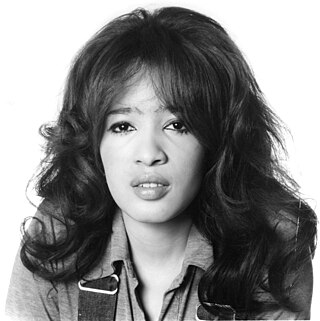
Veronica Yvette Greenfield was an American singer who co-founded and fronted the girl group the Ronettes. She is sometimes referred to as the original "bad girl of rock and roll".
Leslie Marian Uggams is an American actress and singer. After beginning her career as a child in the early 1950s, she garnered acclaim for her role in the Broadway musical Hallelujah, Baby!, winning a Theatre World Award in 1967 and the Tony Award for Best Actress in a Musical in 1968. Uggams gained wider recognition for portraying Kizzy Reynolds in the television miniseries Roots (1977), earning Golden Globe and Emmy Award nominations for her performance.
Helen Merrill is an American jazz vocalist. Her first album, the eponymous 1954 recording Helen Merrill, was an immediate success and associated her with the first generation of bebop jazz musicians. After an active 1950s and 1960s, Merrill spent time recording and touring in Europe and Japan, falling into obscurity in the United States. In the 1980s and 1990s, she was recorded by EmArcy, JVC and Verve, and her performances in America revived her profile. Known for her emotional, sensual vocal performances, she continues to perform today, her career now in its sixth decade of concerts and recordings.

Ronald Anthony White was an American baritone singer, best known as the co-founder of the Miracles and its only consistent original member. White was also known for bringing Stevie Wonder to the attention of Motown Records, and writing several hit singles for the Miracles as well as other artists including the Temptations, Marvin Gaye, and Mary Wells. White died of leukemia in 1995, at 56 years old. In 2012, White was a posthumous inductee into the Rock and Roll Hall of Fame with The Miracles.
Ronald Leslie BurnsAM is an Australian retired rock singer-songwriter and musician.
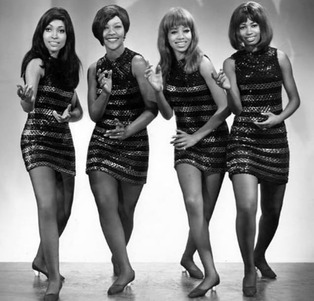
The Ikettes, originally The Artettes, were a trio of female backing vocalists for the Ike & Tina Turner Revue. Despite their origins, the Ikettes became successful artists in their own right. In the 1960s they had hits such as "I'm Blue " and "Peaches 'N' Cream". In 2017, Billboard ranked "I'm Blue " No. 63 on its list of 100 Greatest Girl Group Songs of All Time.

Guy Eckstine is an artist manager and record producer, known for his tenure as A&R executive at Verve Records in the 1990s. With jazz keyboardist Herbie Hancock, Eckstine co-produced the Hancock album The New Standard.
William Mitchell Byers was an American jazz trombonist and arranger.
Norris Turney was an American jazz flautist and saxophonist.
Patti Bown was an American jazz pianist, composer, and singer.

The Prime of My Life is a 1965 studio album by the American singer Billy Eckstine. It was produced by William "Mickey" Stevenson, and was the first of three albums that Eckstine recorded for Motown Records.
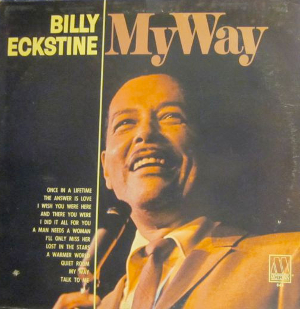
My Way is a 1966 studio album by the American singer Billy Eckstine. It was produced by William "Mickey" Stevenson, and was the second of three albums that Eckstine recorded for Motown Records.
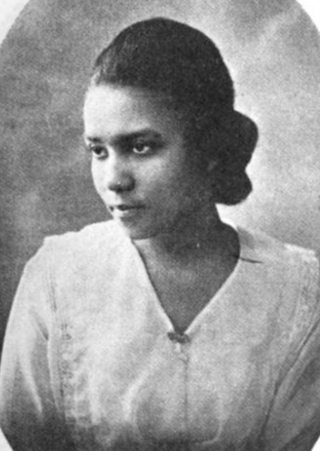
Eloise Colcolough Uggams was an American soprano singer. She was a member of the Fisk Jubilee Singers, and appeared in Broadway musicals.
References
- ↑ Ginell, Cary (2013). Mr. B: The Music and Life of Billy Eckstine. Hal Leonard Books. p. 141. ISBN 978-1-4803-6679-4.
- 1 2 "Billy Eckstine's Stepson Hunted by L.A. Police". Jet . March 19, 1984. p. 61.
- ↑ "Billy Eckstine Dies at 78: Helped to Launch Bebop". The Crisis . March 1993. pp. 6+20.
- ↑ "Big Eckstine Family Shares Eleven-Room California Home". Ebony . July 1961. pp. 48–50.
- 1 2 "TV's Leslie Uggams to Wed Billy Eckstine's Son". Jet . July 30, 1964. p. 57.
- ↑ Sears, Art Jr. (May 20, 1965). "Drama Breakthrough Hovers for Singer who Acted at 8: Singer Sets Sights on a New Career". Jet . pp. 58–61.
- 1 2 3 "Ron Eckstine On His Way in Entertainment World". Florence Morning News . October 16, 1971. p. 7 – via NewspaperArchive.com.
- ↑ Robinson, Louie (June 29, 1967). "Ronnie Hopes to Portray New Image of Negro: Not Angry". Jet . pp. 58–61.
- ↑ Moton, Tony (July 25, 1997). "Dance Gets New Respect". Omaha World Herald . p. 35 – via LexisNexis.
- ↑ "Family Issues Pleas for Escapee Ronnie Eckstine". Jet . March 26, 1984. p. 62.
- ↑ "Leslie Uggams Says Eckstine's Son is 'No. 1'". Jet . August 27, 1964. p. 23.
- ↑ Uggams, Leslie (May 1967). "Why I Married an Australian: Young Singer Tells of Her Marriage Across Color Line". Ebony . pp. 140–144.